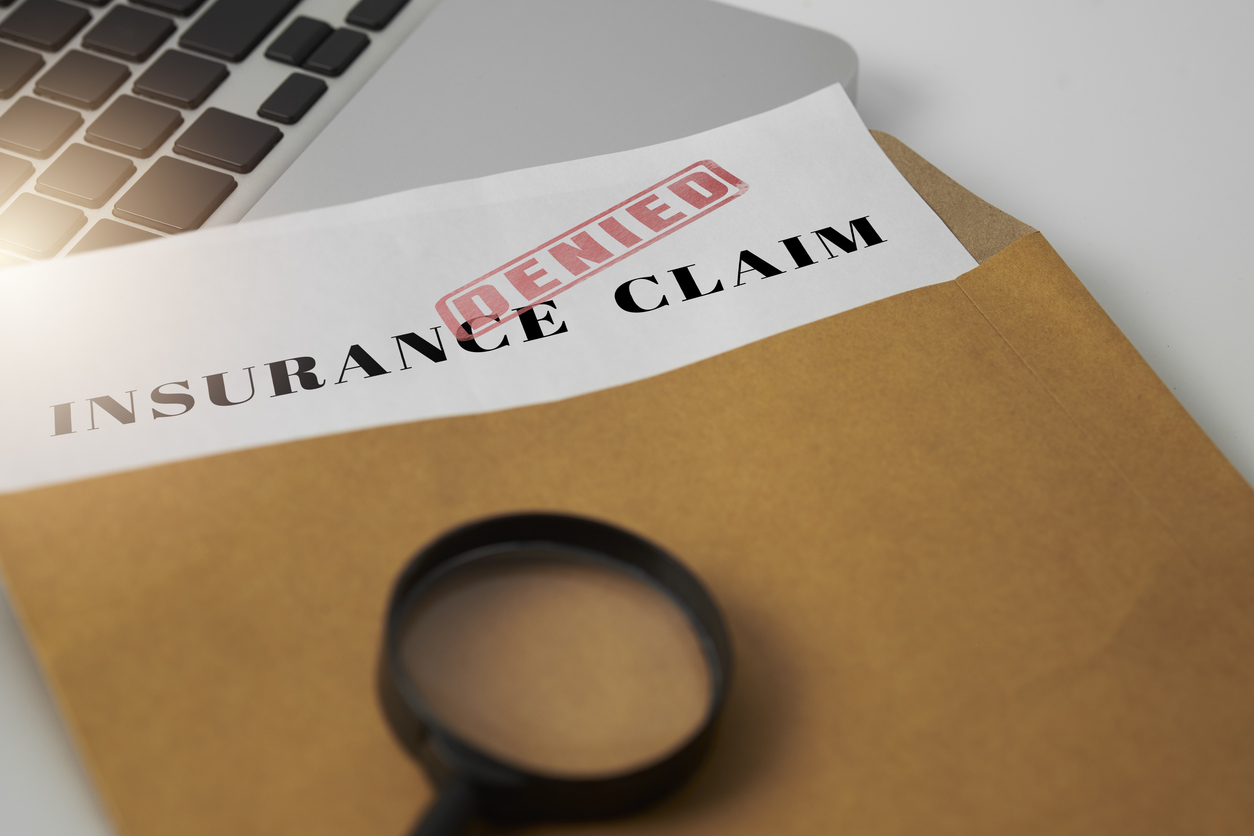Steve Badger and Steve Patrick are really great at what they do—and both publicly do a lot in the field of properly insurance claims handling. Both have been outspoken about insurance fraud. In my recent post, Want A Hail Damage Claim Tip Which Helps Policyholder Recovery? Do Not Miss Friday At 2 With Chip Today, I noted the following:
‘Badger Traps’ will also be a topic with a big shout out to Steve Patrick for his upcoming seminar. The above photo is of Steve Badger and me. Yes, Steve Patrick has a warning about the smiling man next to me and what you have to be careful of when dealing with insurance companies about Overhead and Profit issues with contractors. Patrick’s seminar is gratis to American Policyholder Association members.
I was then forwarded the above YouTube video of Steve Patrick with the title, How to Avoid Being Accused of Insurance Fraud.
I encourage you to take a few minutes and watch the video. It is very important, and Steve Patrick makes a number of significant observations.
One of the remarkable aspects of property insurance claim handling is how often some insurance companies get into a “holy war” about insurance fraud. Both Steve Patrick and Steve Badger will tell anybody that is listening that neither promotes fraud by the insurance company, the policyholder, the contractor or the public adjuster. Indeed, each says fraud should be called out no matter who is doing it. I have literally heard them say the same thing about fraud in different speeches, in different parts of the country.
So, what is the big deal? Well, the big deal is that nobody in the restoration business can stay in business on a “10 and 10” calculation of general contractor overhead and profit—and everybody knows it. I have depositions from insurance company preferred vendors who say that and have written on this in the past. For example, in Restoration Contractor Revenue and Profit Is Important If Policyholders Are Going To Get Quality Work, I noted:
Another book which I purchased this Spring—and strongly suggest all owners of small roofing and construction companies should thoroughly read—is Profit First For Contractors. The book notes that the insurance industry’s insistence on 20% overhead and profit is a ridiculous standard. . . .
Most insurance company aligned general contractors will testify that they have a minimum of 37.5% to 42%, not 21%, as just the long-term break even for general contractor overhead and profit when doing work on insurance claims. Go to a restoration contractor convention, you will hear the same thing. The business speakers teaching contractors how much to charge will laugh at you if you suggest that they can keep restoration company clients in business on 10 and 10. Steve Patrick makes this point in his video, and he is right.
Do not tell me insurance companies and their claims managers do not know this. Heck, some insurance companies in Florida are buying their own restoration companies so they can keep these profit margins for themselves. Maybe they should share what their true margins are from their own companies?
The bottom line is that the insurance company claims departments demand an Xactimate estimate. Everybody knows it is not exact. The bottom-line price can somehow get to an exact number which is a “reasonable price” which Patrick says happens.
I have also noted what contractors have to put up with many claims adjusters in, Restoration Contractors Providing Great Quality Workmanship Are Policyholder Friends But Many Insurance Companies Refuse To Pay For Quality:
Many insurance claims departments have a culture that will only pay for ‘okay’ construction. AT&T’s current advertising campaign about ‘okay’ services and products makes the point. Would you want just an ‘okay’ surgeon or tattoo artist? Would you want your sushi to be just ‘okay?’ Would you search for and buy your grand-baby the ‘cheapest but acceptable’ car seat?
Yet, when it comes to insurance restoration construction, I have never heard an insurance company property insurance adjuster demanding that the contractors providing their pricing, or the pricing found in Xactimate, to be only from quality contractors with the types of processes and culture I quoted….. They always go cheaper and for ‘okay’ construction. They wrongfully allow the ‘cheap’ contractors to provide data for pricing used by Xactimate.
Quality restoration contractors fighting these adjustment practices are heroes for all of us. Demanding fair pricing which allows for quality and standing up to the insurance industry adjusters is admirable. It is far easier to accept lower pricing and provide cheap and inferior workmanship.
So, what a “reasonable price” is often in eyes of the beholder and is not an exact number. Unless the insurance companies are suggesting that we live in a communist country where those in power dictate price, people and firms that have a great reputation and provide quality results should get paid higher as a reasonable price, if that is what the demand will provide.
On the other hand, can you envision a society where the worst can claim whatever they want when it comes to the amount being paid on an insurance claim? Is it proper to lie when providing information to an insurance company? If you watch Steve Patrick carefully on the video, he absolutely says “no.”
Still, most insurance restoration construction scenarios are not with three or four contractors bidding for the same job. Most restoration jobs are far different to a public opening of bids with numerous contractors bidding to an air-tight specifications contract. Indeed, the most common scenario in the property insurance world is one where only one contractor is pre-selected by the policyholder arguing for a price. There is no bidding competition on quality, price or set specifications when setting price.
Do the insurance company adjusters often use bogus claims when submitting information? The frequent fraudulent announcements in the restoration world are from those that say they will do unspecified restoration work for the specified price set by the insurance company knowing that will never happen and the insurance claims adjuster parading the knowingly false statement as leverage in a negotiation. California passed a law which other states should copy just to stop this illegal claims tactic from occurring.
I wonder if Steve Badger had kids in junior high school making fun of him by saying, “watch out for the Badger Trap?” It seems a little weird that it is happening to him as an adult. Maybe Steve Badger, given his public position in the insurance industry, is just a named target to suggest the frustration of what is wrong with certain claims practices being used by insurers and insurance company defense attorneys. The “trap” mentioned by Steve Patrick pre-dates Steve Badger’s entry into the first-party coverage defense field.
One thing is for certain. This debate and controversy over construction pricing and the techniques and lengths some insurance companies allegedly will go to not pay what is fully owed will not end anytime soon.
Please join Drew Houghton and me for a FaceTime livestream discussion of Practical Steps of Investigating a Hail Damage Claim at 2 PM EST today. Here is the link.
Thought For The Day
A friend of mine suddenly announced she had written a novel and got a publishing deal; I thought, ‘Hang on… if she can do it, I can bloody well do it, too.’ That novel went to a bidding war, and went on to be a huge best-seller.
—Jane Green



